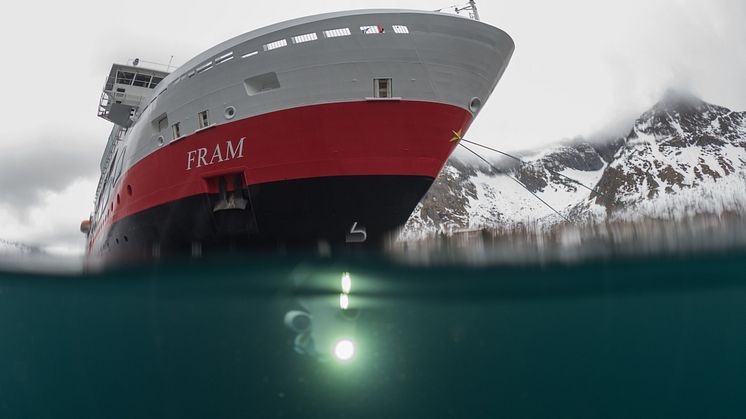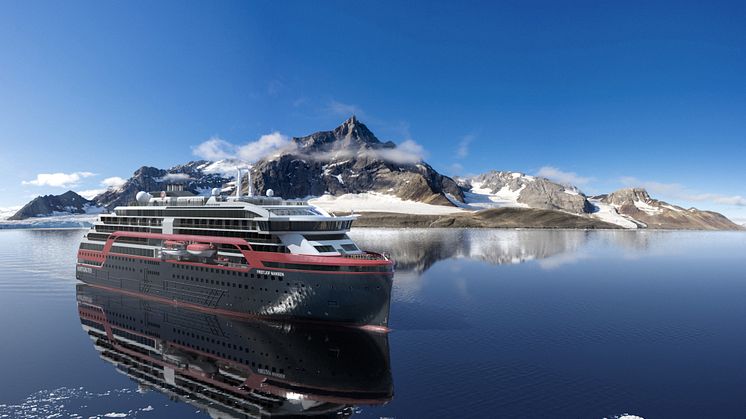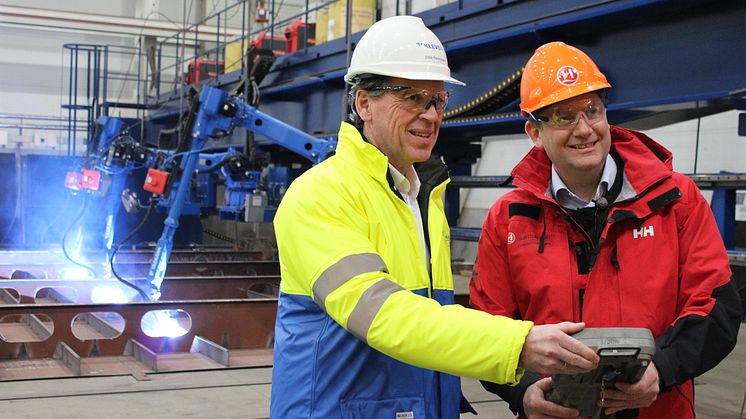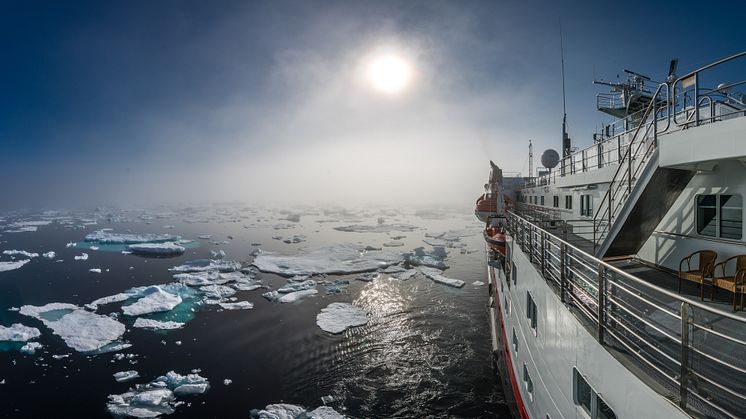
Press release -
Hurtigruten to introduce underwater explorer drones
90 percent of the oceans remain unexplored. That’s about to change, as Hurtigruten plans to introduce underwater drones as part of the experience on their worldwide expedition cruises.
The world leader in exploration travel has partnered with the Norwegian start up Blueye Robotics, developing underwater drones for ocean exploration. The plan is to introduce underwater drones on Hurtigruten expedition ships, such as the groundbreaking hybrid powered MS Roald Amundsen and MS Fridtjof Nansen.
- Hurtigruten is building the world’s greenest and most advanced expedition ships. With the introduction of underwater drones, we are adding a new dimension for our guests, says Hurtigruten CEO Daniel Skjeldam.
Developed in the extreme conditions of the Arctic Ocean where Hurtigruten has sailed for 125 years, the Blueye Pioneer drone has a unique combination of compact size (15 lbs.), power (four robust thrusters) and stability. Blueye Pioneer's HD wide-angle video camera uses special technologies that work in low-light conditions and can stream true-color images live to screens on the Hurtigruten ships, or to screens or digital diving masks worn by guests in smaller Explorer Boats.
- 90 percent of the ocean remains unexplored. With underwater drones on our ships, we can take our guests to areas less explored than the surface of Mars. This provides the opportunity for adventurous guests to become real explorers, Skjeldam says, adding that all findings and relevant video material will be made available for scientists.
Hurtigruten offers voyages to some of the world’s most remote and pristine waters and destinations, such as Antarctica, the Northwest Passage, Arctic Canada, Greenland, Svalbard and the Norwegian coast.
- Now the mysterious realm of the these waters will be accessible to all guests on board. To create the best underwater experience requires both competence and passion. Passion for the ocean is what drives both Hurtigruten and our team of experts, and is what brought us together, Blueye co-founder and chief global strategist Christine Spiten says.
- Hurtigruten and Blueye also share a common concern for the oceans, and a will to educate and advocate through inspiration and understanding. The Blueye Pioneer will be a new tool for the on board expedition teams, and opens a wide range of exciting possibilities for the guests, Spiten adds.
MS Roald Amundsen and MS Fridtjof Nansen will be the world’s first expedition cruise ship powered by hybrid battery technology.
- Sustainability will be the core of every detail of the ship and the on board operation. The hybrid engines will reduce fuel consumption substantially and allow for periods of completely emission free sailing. With a number of other groundbreaking technical solutions throughout the ship, MS Roald Amundsen will be the most advanced and environmental friendly expedition ship ever built, Skjeldam says.
The possibility of adding underwater drones will be the latest addition to a vast variety of custom built expedition equipment that will be found on board – all operated by a handpicked Expedition Team. MS Roald Amundsen will also feature extensive in- and outdoor explorer decks, an immersive Activity Center, three restaurants, a fitness- and wellness center, an aft top deck pool bar with jacuzzis and an infinity pool – and other yet to be disclosed features.
Topics
Hurtigruten - World leader in exploration travel
Building on 125 years of Norwegian pioneering heritage, Hurtigruten is today the world's largest expedition cruise company.
Hurtigruten’s rapidly growing fleet of custom-build expedition ships takes modern-day adventure travellers to the world’s most spectacular destinations on our Planet - from the High North to Antarctica in the south.
Being the world leader in exploration travel comes with a great responsibility. Hurtigruten is enhancing destinations and runs an responsible, sustainable global operation.
Hurtigruten is introducing the world’s first hybrid battery powered cruise ships, the MS Roald Amundsen and the MS Fridtjof Nansen. A third hybrid powered expedition vessel will be added to the fleet in 2021.




